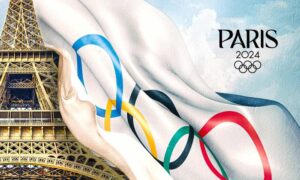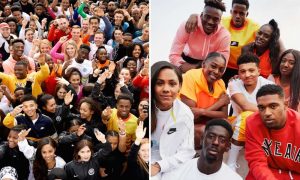The Trump administration has created a major, perhaps insurmountable, hurdle for Los Angeles in its bid to secure a third Olympic Games later this year, Olympic historians said.
Already in a tight race with Paris for the 2024 Olympic Games, officials for the Los Angeles bid and the city of L.A. must now navigate through the remaining eight months of a global campaign against the backdrop of mounting concerns about the viability of the American bid with the international sports community and a growing number of foreign politicians.
It is estimated that Trump could cost the LA bid at least five votes among the 98 IOC members who will make their final decision in Lima in September. So far, however, only the St Lucian IOC member Richard Peterkin has spoken out against the executive order, claiming it is “totally contrary to Olympic ideals”.
Even so, concerns over Trump appear to be shared by some members of the LA bid, with the USA Today newspaper reporting on Monday that even before he defeated Hillary Clinton in November, four of its staff feared that he could make it difficult for LA “to win over IOC voters from Islamic and Latin countries, as well as female IOC members, due to inflammatory comments he made during the campaign”.
It does not help, either, that Trump’s executive order also tramples over the IOC’s charter which, among other things, talks about “respect for universal ethical principles”, “promoting a peaceful society concerned with the preservation of human dignity”, and “rights and freedoms – without discrimination of any kind”.
No wonder, then, that the Los Angeles team quickly distanced themselves from the order, with the city’s mayor, Eric Garcetti, telling reporters it “unfairly targets refugees – many of them families with young children – whose lives may depend on the compassion and generosity of the United States”.
Yet while Trump’s unique brand of international diplomacy may have bruised LA’s bid in the short term, the damage could be only temporary. Remember the fury about China’s attitude to human rights and the rule of law before Beijing was awarded the 2008 Olympics? It mattered not. Similarly, Russia’s record of illiberalism under Vladimir Putin was no bar to Sochi being awarded the 2014 Winter Games. Indeed, while Trump’s comments will alienate some IOC delegates it could also attract fresh support from Russia and other former Soviet republics.
A lot can also happen between now and September, especially with other bids fearing potential icebergs. Budapest has just suspended its promotional campaign because of the possibility of a referendum taking place over its Olympic bid, while the prospect of the far-right leader Marine Le Pen becoming president of France in May could be even more damaging to the Paris bid than Trump has been to that of Los Angeles.
No wonder Michael Payne, the director of marketing for the IOC for 20 years and a senior adviser to the successful bids of London and Rio, believes that everything is still to play for. “These campaigns are always very fluid,” he says. “It will all be about the state of play in August and September – it’s a continual rollercoaster and a lot more issues will play out for all three of the bidders in the coming months.”
Payne, an adviser to Los Angeles, stresses that many IOC delegates will look beyond Trump’s comments to the bid’s strengths: its emphasis on diversity, the fact everything is already built which reduces costs, and the historical legacy of the 1984 Olympics, one of the most successful of all time.
“The ’84 Games proved a complete game-changer in rebooting the whole bidding and hosting process after Montreal, and the subsequent 30 years has been a golden era,” Payne told the Guardian. “There are many who believe you need that recalibration again and it is something that [IOC] president [Thomas] Bach is trying to achieve with his Agenda 2020 proposals. He wants to show you can stage the Olympic Games without all of the financial or operational challenges that have affected recent bids. And there is no question that LA is well placed to provide that boost again.”
The IOC is difficult to read, when it comes to policies. Trump could prove an asset or a liability. The IOC’s aloofness may remind him of lack of acceptance in New York circles. And despite recent events, it would still be no great surprise if a majority of IOC voters reflect in September that the organisation needs the US – and its huge TV audiences and advertising dollars – as least as much as Los Angeles craves the Olympics.
















